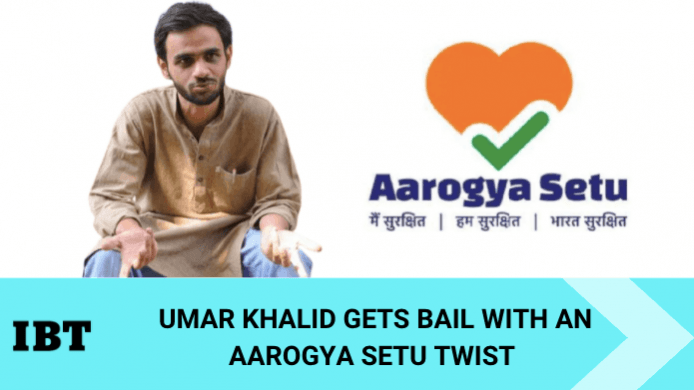In a major development in the ongoing Delhi riots case arising out of an FIR lodged at the Khajuri Khas police station, a Delhi Court on Thursday granted bail to former JNU student Umar Khalid. Additional Sessions Judge Vinod Yadav granted the bail, observing that Khalid "cannot be made to stay in jail for infinity merely on account of the fact that other persons who were part of the riotous mob have to be identified and arrested."
Judge Yadav has set bail conditions and one among them is that Khalid installs Aarogya Setu app on his phone upon release. Khalid is to provide his phone number to the SHO of Khajuri police station and keep his phone on at all times.
"The investigation in the matter is complete and chargesheet has already been filed. The trial in the matter is likely to take long time. The applicant has been in judicial custody in the matter since 01.10.2020. The applicant cannot be made to incarcerate in jail for infinity merely on account of the fact that other persons who were part of the riotous mob have to be identified and arrested in the matter.", the Court ruled.

Additionally, the court has set a bond of Rs 20,000 for the bail and Khalid is required to appear in all court hearings in the case. The court also directed Khalid not to influence any witnesses or tamper with any evidence linked the case, reports have revealed.
Delhi riots and Umar Khalid's arrest
Umar Khalid was among hundreds of people booked in the riots that took place in northeast Delhi in February last year. Khalid is also booked under sedition charges for allegedly being a part of a premeditated conspiracy in the Delhi riots. The case involves the riots that took place at or around the house of the main accused and then AAP councilor Tahir Hussain.

Khalid was arrested in October and the Delhi Police Crime Branch had alleged that Khalid was part of a group that organized a meeting in Shaheen Bagh on January 8 to allegedly plot the violence, according to the charge sheet. Khalid was also accused of partaking in anti-CAA protests in Madhya Pradesh, Rajasthan, Bihar and Maharashtra.
Khalid, however, argued that he had been falsely implicated by the investigating agency on account of "political vendetta to muzzle the dissent." The Court opined that Khalid deserved bail on the ground of parity with co-accused Khalid Saifi.














